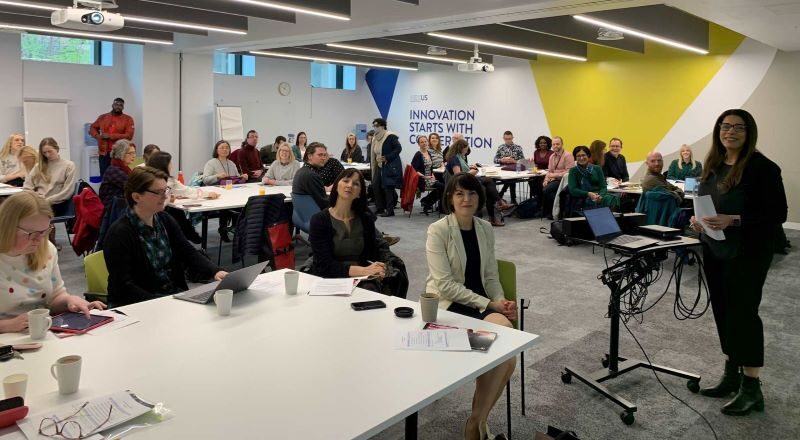Co-production Network
Building a Culture of Collaboration and Delivery Impact through Co-production
At the University of Leeds, we value different forms of knowledge, and strongly believe in the importance of research co-design and co-production with individuals and groups outside academia through engagement and participatory research. Our Co-Production Network serves to promote and share the value of co-production methodologies and approaches in challenge-focused research in order to learn from professional communities, civil society organisations and citizen, make research partnerships more equitable, and recognise the value of knowledge and expertise beyond the academic community. Advantages derive not simply in the combination of perspectives but also in framing and shaping questions, methodologies and impacts differently.
The Co-production Network is a community of researchers from across diverse disciplines and schools within the University of Leeds committed to working in collaboration with a wide range of external partners locally, nationally and internationally, including local communities, businesses, government agencies and third-sector organisations to co-design shared agendas for collaboration, research and change. Our philosophy is that those who are going to use research, apply the knowledge base or the subjects of research outcomes should be involved in generating it by actively co-producing the evidence. It assumes mutual respect, no hierarchy of knowledge forms, fluid and permeable disciplinary boundaries, and a normative concern with application. The network aims to showcase examples of co-production in practice and highlight the benefits and uses of co-production, whilst also considering barriers and how to facilitate interdisciplinary co-production.
Ongoing activities
As part of the ongoing work, the Network delivered a series of online interdisciplinary seminars entitled “Engaged Research: Rethinking the Co-Production of Knowledge”. The series was jointly coordinated by Leeds Social Sciences Institute (LSSI) and Leeds Art and Humanities Research Institute (LAHRI). The seminars focused on improving the understanding of research co-production and its application and implications across disciplines. The sessions explored the contribution that co-production, engaged research and citizen science can have in addressing complex societal challenges, as well as further exploring the meaning, purposes and challenges of co-produced research, and created a forum for different disciplines to come together to share experiences, learning and best practice. The seminars aimed to identify priorities to help improve how co-production approaches might be supported and integrated into wider approaches to research and knowledge exchange.
In March 2023 we held an event to launch the Co-production Research Toolkit. This was a chance for us to share examples of co-produced research projects with the attendees and rejuvenate the Co-production Network at Leeds. A morning of presentations showcasing some of the projects in the toolkit was followed by a quickfire panel discussion, where panelists reflected on the morning's presentations and discussed the challenges and opportunities that co-production presents. Panel members also discussed what co-production work is already taking place in their disciplinary areas of research, and we asked the audience what support they would like to see offered in the future.
We are now working through the feedback and suggestions offered at the event, and have created a short questionnaire to find out what colleagues at the University of Leeds wants from the Co-production Network, and whether they would like a more involved role. Have your say HERE, the survey will remain live until 12th June 2023.
Find out more
There are many opportunities for external organisations to get involved or if you are a researcher interested in co-production, we would also like to hear from you.
To find out more please contact Alison Lundbeck
Below is the trailer for the Co-production Research event, with a taster of what was to come.

